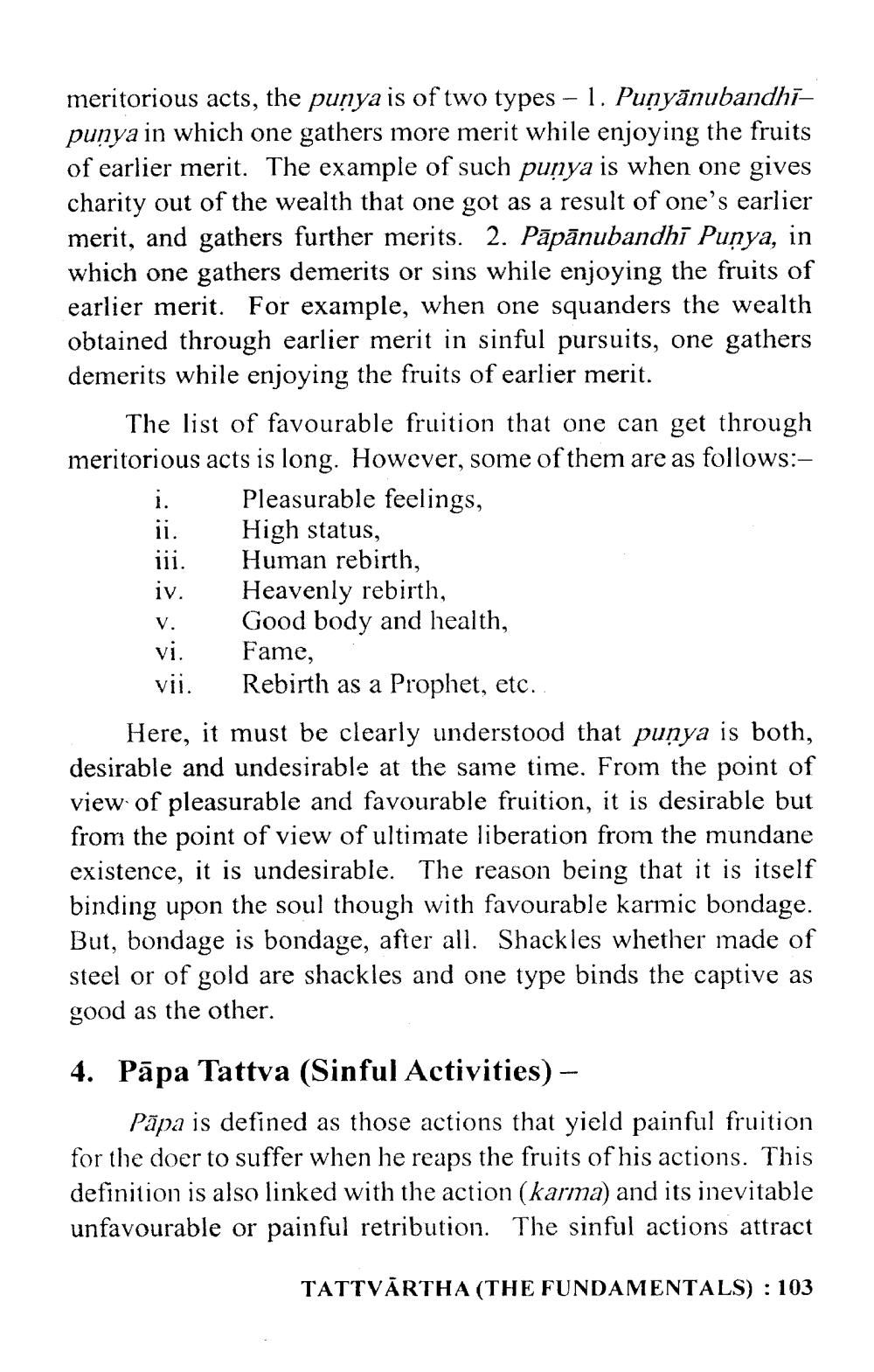________________
meritorious acts, the punya is of two types - 1. Punyānubandhipunya in which one gathers more merit while enjoying the fruits of earlier merit. The example of such punya is when one gives charity out of the wealth that one got as a result of one's earlier merit, and gathers further merits. 2. Pāpānubandhi Punya, in which one gathers demerits or sins while enjoying the fruits of earlier merit. For example, when one squanders the wealth obtained through earlier merit in sinful pursuits, one gathers demerits while enjoying the fruits of earlier merit.
The list of favourable fruition that one can get through meritorious acts is long. However, some of them are as follows:i. Pleasurable feelings,
High status, Human rebirth, Heavenly rebirth,
Good body and health, vi. Fame,
vii. Rebirth as a Prophet, etc..
Here, it must be clearly understood that punya is both, desirable and undesirable at the same time. From the point of view of pleasurable and favourable fruition, it is desirable but from the point of view of ultimate liberation from the mundane existence, it is undesirable. The reason being that it is itself binding upon the soul though with favourable karmic bondage. But, bondage is bondage, after all. Shackles whether made of steel or of gold are shackles and one type binds the captive as good as the other.
4. Pāpa Tattva (Sinful Activities) -
Pāpa is defined as those actions that yield painful fruition for the doer to suffer when he reaps the fruits of his actions. This definition is also linked with the action (karma) and its inevitable unfavourable or painful retribution. The sinful actions attract
TATTVĀRTHA (THE FUNDAMENTALS) : 103




